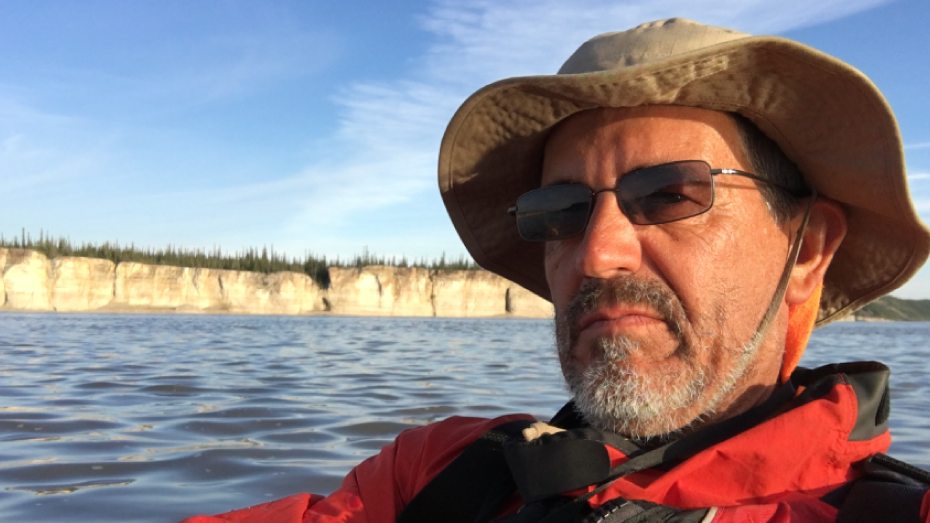Dan Wynne: Challenging Mackenzie River Record Of 1000 Miles In 15 Days with Gearlab Akiak

By SNEWS
Davis, California, June 13, 2019 - Although geologist Dan Wynne only took up kayaking three years ago, June 18th he will attempt the fastest transit of the vast Mackenzie River on record. He plans to do the trip through Canada’s Northwest Territories solo, using an Akiak Greenland paddle.
As a scientist -- Wynne is a geologist with the State of California’s Department of Conservation -- his planning process is methodical. The Mackenzie River offers a doable thousand-mile route, he reasons. Supply and on-river logistics are easier than most routes of similar length, and the safety margin is sufficient for running it solo.
Wynne estimates the trip will exact 500,000 paddle strokes. Assuming good weather, he will depart Hay River on Monday, June 18th, and pull out in Inuvik, a town 200 km north of the Arctic Circle.
What inspired him to tackle the 1,010-mile stretch of Canada’s longest river system, dubbed the “Mississippi of Canada”?
“Why does a human become obsessed by slogging up Mt. Everest – or setting a fastest-ever record on a one thousand-mile paddle, alone and nearly unsupported?” Wynne asks. “Ego? Folly? Indomitable inner spirit? Desire for penultimate physical and mental challenge? … Yes, it’s all of these for me.”
The fastest records down the Mackenzie are 21 days by “two crazy Kiwis in a canoe,” and 23 days by Norm Hopkins of Rochester MN, who paddled to Tuktoyaktuk and then back upstream to Inuvik for about 1,260 miles. Wynne aims to complete the trip from Hay River to Inuvik in 15 days.
“The right gear makes a trip easier and increases the safety margin,” Wynne says. “Ergonomic efficiency will allow me to go longer days, with less muscle exhaustion and damage. By using a Greenland-style paddle, I’ll lessen the wear and tear on my body and bring in the fastest time on the river!”

Given his physical injuries -- Wynne has a fused and metal-plated vertebrae with permanent nerve damage, rheumatoid arthritis, and a pinched nerve -- finding the ideal paddle was mission-critical.
He discovered Gearlab while researching carbon fiber Greenland paddles on Amazon. He knew he wanted to avoid wood paddles that lose their varnish finish and get cracked on rocks so they no longer move smoothly through the water.
“I realized that much of my older and sometimes re-purposed gear, while sufficient for a 100-mile paddle in California’s Eel River basin, was not reliable enough for a 1,000-mile trip alone in the wilderness,” he says. “When I researched the vendors and their paddles, only one shown through with quality, reliability, good design and construction: Gearlab.”
Wynne will use a satellite linked GPS to track his journey, which he will document along the way in posts, photos and map progress on a Facebook page: Kayak to the Arctic for the ACLU. He has set up a donation page, and all proceeds will benefit the ACLU. Wynne’s goal for fundraising is a $5,000 contribution by the end of the trip, and he will personally match what is needed to attain this goal. Wynne will record by GPS tracking, at three to four minute intervals, the reaches of the river that have the fastest water. He aims to publish the essay he started in 2017 entitled "A Geologist's Notes Paddling the Mackenzie River."
Wynne believes that with a rigorous schedule, too little sleep, cold meals and his Gearlab Greenland paddle, his trip may set a world record for the fastest solo kayak trip of 1,000 miles. “I can’t prove this for sure,” he said, “but I’ve researched the topic deeply several times and so far have not found record of anyone kayaking 1,000 miles alone in less than about 20 days.”
- The original article is released on SNEWS.